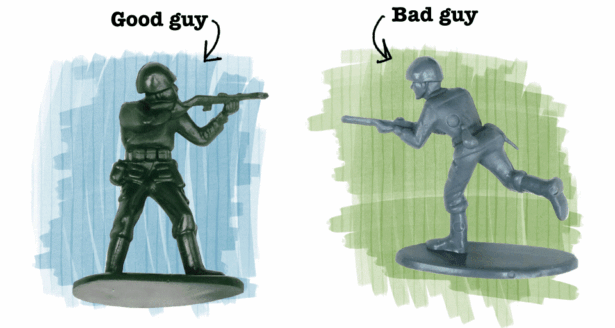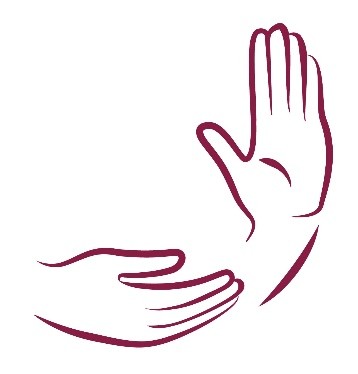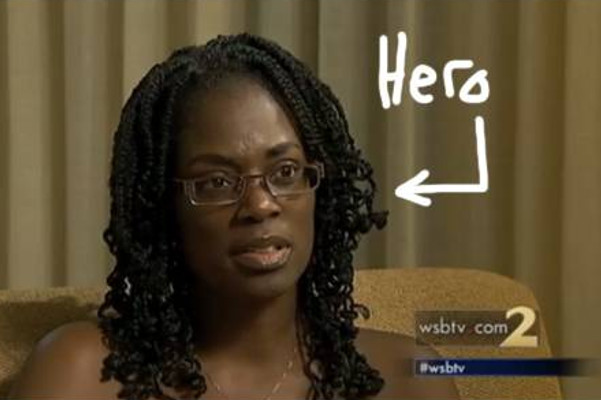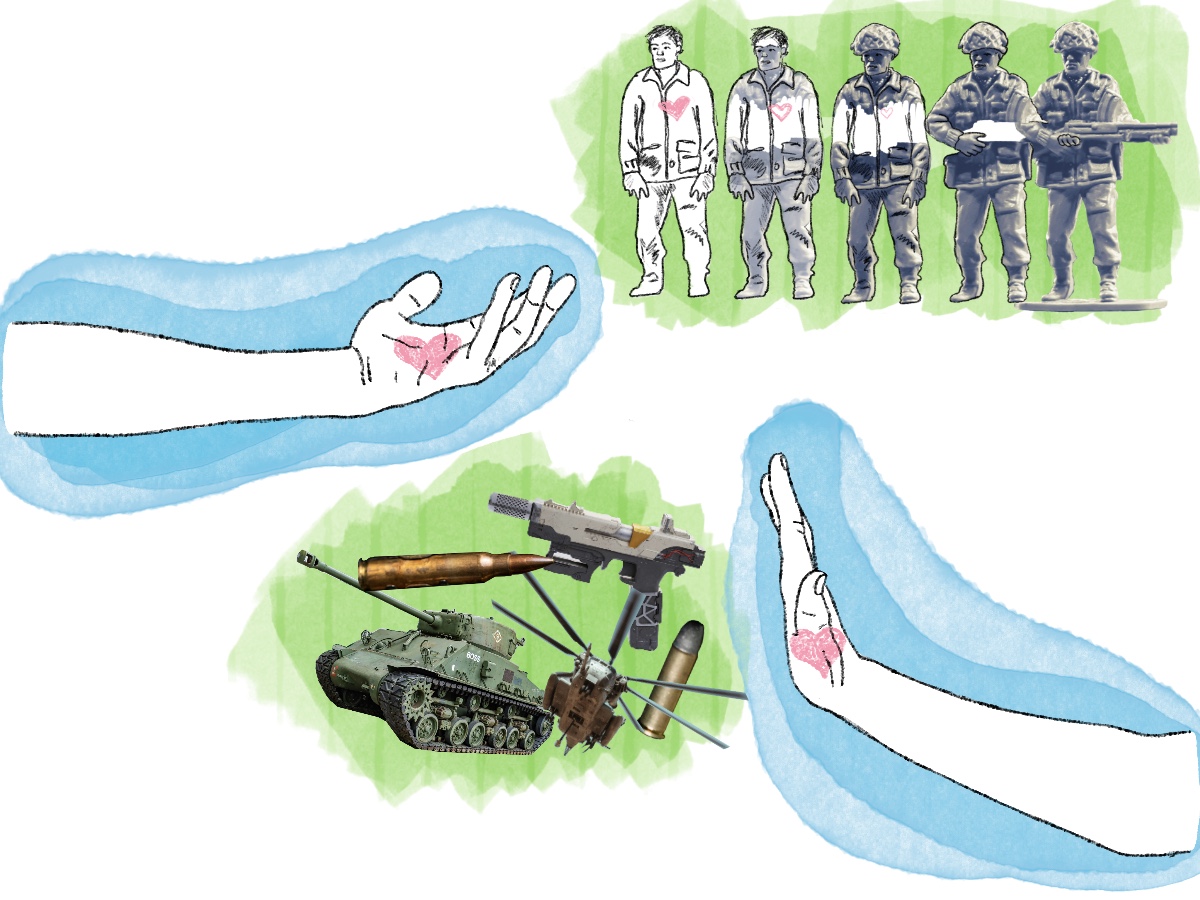None of us know how to stop what is happening in Gaza.
Even within this brutal reality, each of us can find what is ours to do based on our strengths and the opening within our sphere of influence. Each of us can align means with ends to embody the interdependence of all life in how we act now. Each of us can envision alternatives to war, extraction and the mindset of scarcity, separation and powerlessness, and take one tiny step closer to realigning humanity with life.
As an Israeli Jew in voluntary political exile since 1983 facing horrors being done in my name and without my consent, I have been identifying what is mine to do since shortly after Oct. 7, 2023. As part of it, my Palestinian friend A’ida Shibli and I started two projects. One is birthing the Women in White project, with the large vision of sending 100,000 women to any war zone to bring a stop to hostilities with their nonviolent presence. Many people have been cheering this project on, and a small and dedicated group of women has been tending to it and slowly coalescing on design and early actions. Many of us believe that this project would make sanctions unnecessary if successful. The other was a year of engaging monthly in “Talking about a Land with Many Names,” where we had deep conversations about topics that Israelis and Palestinians rarely touch on.
On one of these conversations, Martin Winiecki, our friend and moderator, invoked our shared vision of “a non-state future [in the region] in which people would … organize themselves in communities that orient towards people’s needs — and live in connection with land and an ethic and a practice of nonviolence.” He then asked: “What would you wish for … to begin walking us in this direction?”
My answer is clear and simple: Given how extreme the situation is, I want sanctions to be imposed on Israel by heads of state of the European Union, and I want them imposed with love and not as a punitive measure.
Sign Up for our Newsletter
With the EU being Israel’s largest trade partner, can this be sufficient independent of what the United States will do? It’s a step, and I don’t know.
Can this be a tiny step towards a longer-term solution that cares for Palestinians, Israelis and all life? Probably.
Can protesters ask for this with bright clarity about caring for everyone that can make their call unstoppable? Maybe.
Is this likely? Not within the either/or groove of protecting “victims” who are “justified” in using force, and punishing “aggressors” or “perpetrators” who are “wrong” for using force.
Integrating power and love
Separating us into victims and perpetrators continues the mindset of scarcity and separation that fuels wars. Within that mindset, caring for Palestinians means no empathy for Israelis and caring for Israelis means accepting what is happening in Gaza. This mindset also fuels thinking that anything other than punishment, often reframed as “accountability,” means condoning what is happening.
As I see it, punitive measures breed future wars and no amount of them, towards anyone, has ever created peace.
 (Gwen Olton)
(Gwen Olton)
Instead, my short-term vision starts with a mindset shift: from choosing sides to caring for everyone, and from punishment vs. condoning to fully following Martin Luther King Jr.’s call to integrate power and love in his 1967 “Where Do We Go from Here” speech.
I see all wars and atrocities as expressions of complex, multigenerational trauma fields activated in specific moments for multiple, local, material and nonmaterial reasons. I see only love as potentially transforming trauma, even when sanctions are necessary.
Why trauma matters
Many see what happened on Oct. 7, 2023, as “minor” compared to Israel’s response and focus primarily on what led to Hamas’ actions, rather than on their impact. I see this as a crucial and tragic mistake because Israel’s intense military presence coexists with a long history of persecution and the continued presence of antisemitism. Focusing only on the former has created a moral mess.
I believe it’s vital to understand what happened that day from within the Israeli experience if we want to respond effectively to what is happening now. I believe that the concentrated intensity of more Jews brutally killed in one day than at any time since World War II resulted in a trauma collapse of Israeli society. What I mean by this is a collective experience of such extreme activation of trauma that the basic capacity to think and reflect on what is happening is lost. This is my human way of explaining Israelis’ deep distortions in perception and the prevalent and immense loss of care in relation to the destruction, killing, displacement, starvation and everything that is continuing in Gaza, even after the fragile ceasefire, which is being repeatedly violated by Israel.
I can easily see why arguments of proportionality are filtered through the historical context of Jewish experience. Antisemitism isn’t a thing of the past any more than racism is. This is an existential and moral dilemma few consider deeply: Where can we Jews keep ourselves alive and well collectively, where we can manage our affairs as a distinctive group? Tragically, even within our contested ancestral land, the attempt to restore a collective existence has been at existential cost to Palestinians.
This immense trauma is why sanctions are likely the only measure that could bring an immediate end to the violence. It is also why love, however difficult to access, is needed to keep the cycle of war from continuing.
Thinking about sanctions and nonviolence
 Barbara Deming’s two-hand gesture in the logo of the Nonviolent Global Liberation community I birthed in 2017. (Yaren Köse)
Barbara Deming’s two-hand gesture in the logo of the Nonviolent Global Liberation community I birthed in 2017. (Yaren Köse)
Imposing sanctions can be consistent with nonviolence when done with love and mourning. This is the essence of Barbara Deming’s two-hand gesture, which says: I will continue to love you with an extended hand, and I will raise my other hand to stop you. A loving confrontation can bust the illusion of violence leading to peace, expose the costs of business as usual, and make visible the full complexity of life within patriarchal societies. There is nothing passive or easy about nonviolence.
In the absence of love and mourning, dehumanization can spill into antisemitic responses to Israel and Jews. I don’t believe antisemitism is a primary driver in the call to sanctions, and I simultaneously don’t believe that we can say that antisemitism is completely absent from what fuels the opposition to Israel. I was astounded and comforted hearing A’ida say: “If you didn’t learn to love Jewish people, you have no right to criticize Israel.” Simultaneously, the complexities of antisemitism interfere with the clarity and strength this moment calls for, as some people and even governments don’t call for sanctions to avoid being seen as antisemitic.
Aligning sanctions with nonviolence starts with framing them as care for everyone in the region, regardless of what they have done. I believe this would make it more difficult to attribute antisemitism to calls for sanctions. I also want only sanctions directly necessary to stop the destruction and not punitive sanctions that create hardship for individual Israeli Jews (and would also impact the large minority of Palestinians and others who live in Israel). Despite enormous differences in severity, punitive sanctions are no more likely to lead Israelis to rise up against the government than bombing and starving Gaza has led the Gazan population to rise up against Hamas.
I want the call to impose sanctions with love to mimic Gandhi’s Salt March and the U.S. civil rights movement’s lunch counter sit-ins. Both of these historic campaigns demonstrated, in action, what a future could look like, which is why Sharif Abdullah, author of “Creating a World that Works for All,” calls them “vision implementation.” I want such a call to wake us up from the separation trance that fuels all wars: In Gaza, dozens of armed conflicts around the world, and the many others that will continue to happen if we don’t transform the pattern of separation at its core.
A message of practical love to Israelis
Nonviolence simultaneously humanizes those whose actions we are trying to change while humanizing us to them. Understanding the depth of trauma that the majority of Israeli Jews are still in is how we humanize them to anyone who otherwise dismisses, judges and demonizes them. Focusing on a loving framing is how we can prevent re-traumatizing and humanize ourselves to those within that trauma. It may support Israelis to see the care even when they are inevitably upset by sanctions. That’s precisely what Gandhi did with the British.
Previous Coverage You, too, can stop a school shooter
You, too, can stop a school shooter
I want protesters and heads of EU states to learn from two African-American women. One is Antoinette Tuff, who stopped a school shooting by connecting lovingly, humanly and vulnerably with the would-be shooter. The other is an anonymous cashier who saw the swastika on the hand of a man when he handed her money and said, “Why are you doing this to yourself? You’re better than that!” A year later, he credited her with the journey that led him to Life after Hate, an organization that supports people to recover from having been part of extreme right-wing movements.
How, then, can a call to sanctions be framed in a way that will be received as an act of care? Of course it’s impossible to predict, and I still believe that each part of what I propose below will increase the chances of the care being seen.
When we call for sanctions, we need to do several key things:
Acknowledge what happened. Many of us, including some Israeli Jews, see what happened on that fateful day as tragically predictable given what preceded it, not as unprovoked hatred of Jews. And this doesn’t change the blunt reality of the impact. Any calls for sanctions or ceasefire that don’t explicitly recognize this horror and its historical context are nearly guaranteed to be perceived as naïve about antisemitism or as a manifestation of it.
Point to the futility of what Israel is doing. Even if the goal were confined to eliminating Hamas in support of peace and security for Israelis, outside of a trauma vortex it is painfully obvious that any children who survive the current war are being primed to engage in violent extremism. Even bracketing all moral considerations, what Israel is doing shows no understanding of what humans do when our dignity and basic freedom are at stake.
Speak to why sanctions are needed. This is the toughest and most essential part: I believe what’s needed is to frame the message as necessary care for Israelis rather than as punishment arising from care for Palestinians — orienting to needs rather than to moral principles trapped in the either/or scarcity of care.
I want to humbly and lovingly invite Israelis to see that they are ruled by a man who lost all contact with reality. He and other Israeli proponents of war are taking advantage of the deep trauma field in Israel to lead them into doing things that are contrary to the Jewish heritage they are seeking to protect and that will take generations to recover from. I want them to grasp that caring for Palestinians is caring for themselves in the long run.
This is what Antoinette Tuff did with Michael Brandon Hill: She spoke to his suffering, to his aloneness, to his trauma, and through that managed to settle his nervous system. And then he stopped and did not follow through on the shooting he had planned.
On the material plane, Israel cannot continue what it’s doing for very long without receiving massive military supplies or economic support that the U.S. and the EU are providing. I hold these countries directly responsible for what is happening because they haven’t used their leverage to stop it. Simultaneously, the current ceasefire, with whatever pressure Donald Trump may have put on Benjamin Netanyahu to accept it, is fragile and unlikely to be the beginning of an actual peace process. That some European countries have eased the partial sanctions they have previously placed on Israel is also worrisome to me. The logic of good guys and bad guys has remained intact through all these negotiations.

Support Us
Waging Nonviolence depends on reader support. Make a donation today!
If we want the cycle itself to end, I still believe it is necessary to put pressure on Israel to walk much further than a ceasefire. And simultaneously I believe that there will be a need to treat even the extremists, on both sides, as fellow humans and kin, no matter what anyone has done.
Beyond the moment
Nonviolence relies on discerning everything freshly, based on context, purpose, capacities, needs, impacts and available resources. Ultimately, I want to form a field of love strong enough to surround the entire patriarchal field of scarcity, separation and powerlessness and realign us with life, so we can live again in flow, togetherness and choice.
Despite ongoing anguish about whether such a field can come into existence given where we are collectively as a species, I continue to share whatever love and trust in life is available within and around me. For now, I advocate for sanctions with love, because even within the existing system, every step of the way from the current ceasefire is significant and might seed a larger shift.
Both A’ida and I wonder: Can a path where no one wins, no one loses and everyone is cared about become a model? And if we also engage in healing and creative problem solving, might everything “normal” topple? Might the journey towards liberation for all and realigning humanity with life then become a practical reality? Just because we don’t know the answer to these questions is no reason not to act, now, based on our faith and convictions.
Sanctions based on care for everyone in a deadly situation have not been tried. Collectively, we continue to either do nothing or apply punitive measures that remain within the story of war. I continue to believe that a firm and loving response stands a much better chance than the tried-and-false alternatives to attend to the profound moral injury that we are living with globally and to begin to transform the entire situation into a livable future in the region.

